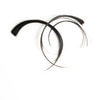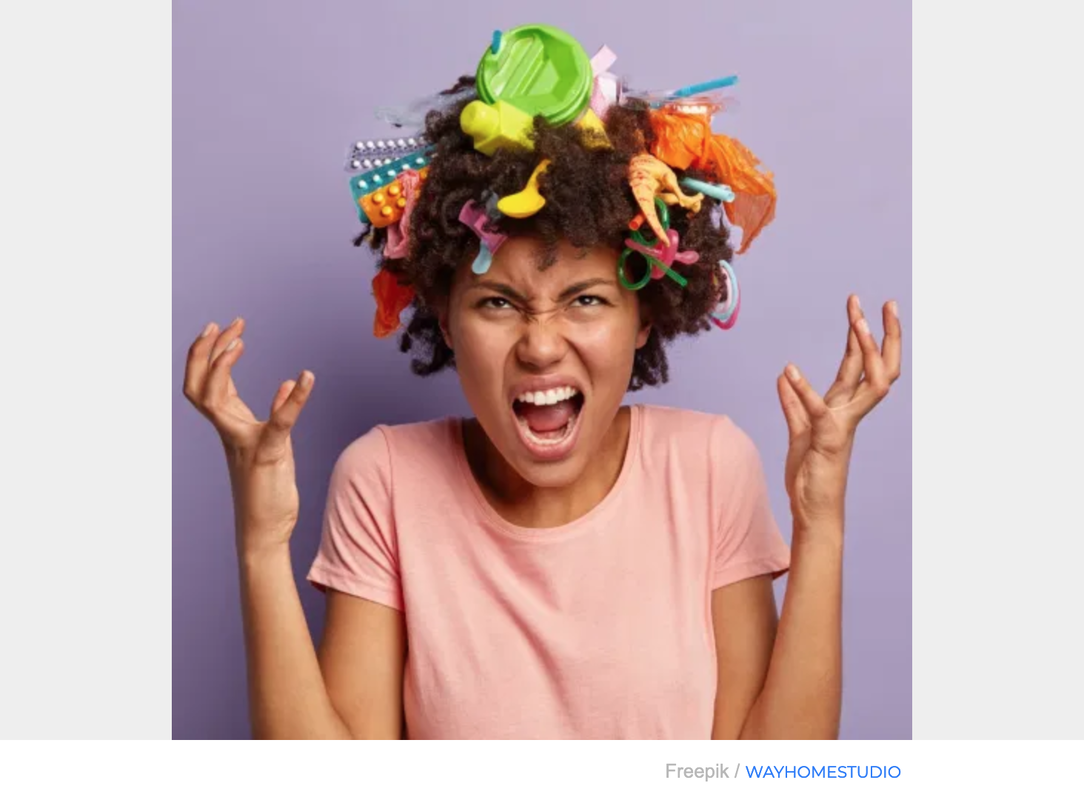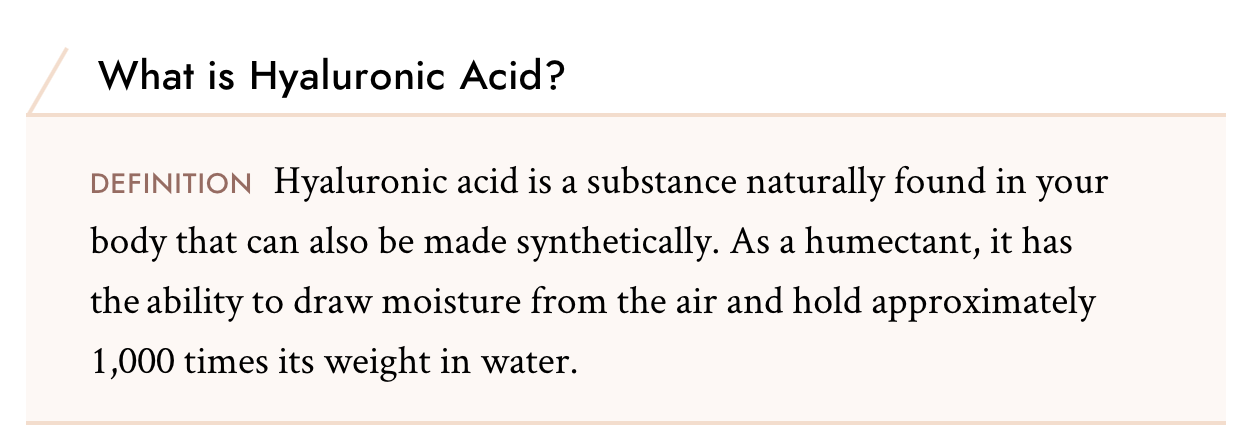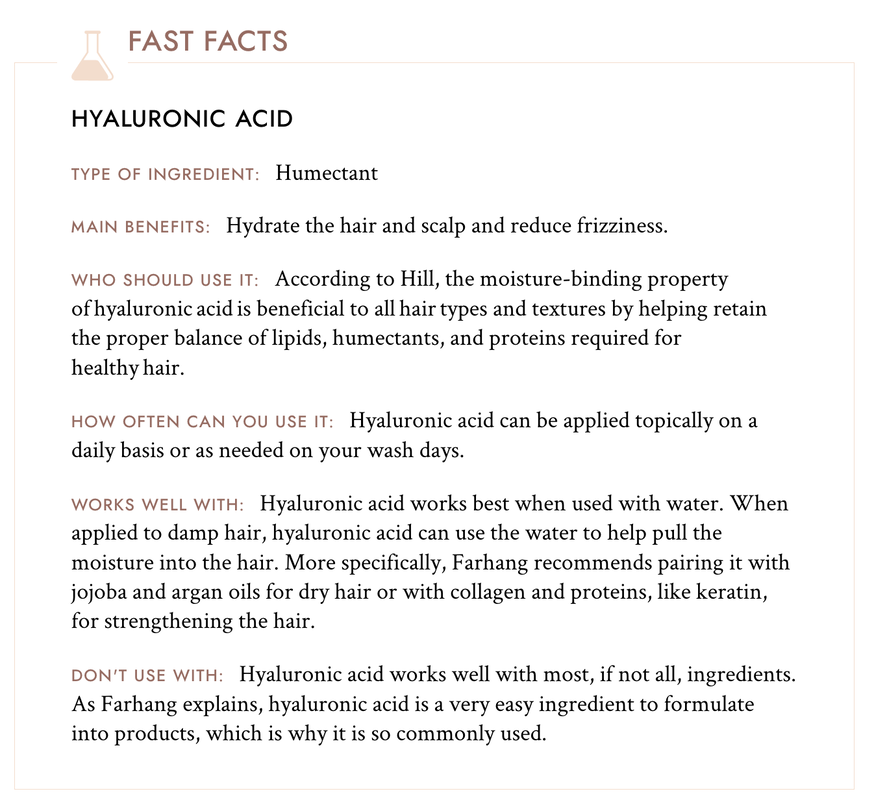|
5/25/2023 Why is Rosemary Hair Oil Trending?Analysis of Google search data has revealed that online searches for ‘rosemary oil’ have skyrocketed 135% over the past year in the UK due to the huge surge of interest generated through TikTok. A new finding by beauty and wellness marketplace Fresha analyzed Google search data for searches related to the hair hack, which revealed a 135% increase over the past year and a 695% increase over the past five years just in the United Kingdom. Searches for ‘rosemary oil’ have also gained interest across the globe, with an increase in worldwide searches of 331% over the past five years. The interest in rosemary oil gained popularity on social media app TikTok after beauty and wellness influencers shared their experiences using the product while showcasing the results after around six weeks. “The power of social media, especially TikTok, allows influencers worldwide to share their experiences and knowledge with those who might want to know more about a particular beauty topic but don’t know quite where to start," shares William Zeqiri, founder and CEO of Fresha. "These findings are a definite eye-opener to see just how much exposure TikTok can offer to such a simple and accessible substance like rosemary oil and proves just how many people are interested in natural remedies of haircare which are fun and easily manageable, even if you are a regular salon visitor.” The interest in rosemary oil alongside the hashtag #hairtok has racked up an astonishing number of views. The hashtag #rosemaryoil has totaled 1.3 billion views, alongside #rosemaryoilforhairgrowth reaching 212.3 million views, proving the curiosity of TikTok users in the oil. What does rosemary oil do to your hair? The oil stimulates and promotes hair growth, battles against dandruff and prevents premature graying. It is also proven to add shine and a healthy glow to the hair after a more extended period of regular use. The beauty influencers on TikTok recommend using rosemary oil as part of your hair care routine, not to expect results after the first few uses and sticking with it as you could see incredible differences in your hair's health even after six weeks. How often should you use rosemary oil in your hair? It is recommended if you have thinner, lighter and easily damaged hair, you should use the oil once a week as a treatment. If dandruff is what you want to battle, then use a few drops of rosemary oil alongside gentler oils such as coconut, caster or jojoba oil. It can be used up to four times a week for shorter periods of time. Mixing rosemary oil with lighter oils such as these will help dilute the rosemary oil's strength and work to soothe and nurture the hair while using the natural oils. from BeautyLaunchPad
When we reach for a new food or skin care product, many of us turn to Google to find out what is in it. We want to know what makes it “good” for us or if it will “work” to make us look better and more youthful. Unfortunately, most people do not do this when picking out hair care products, and our scalp is often given little thought. Do you know what shampoo really is or why you even use it? Did you know you have a choice and there are many shampoo alternatives that give better results? Find out more about the no-poo method and why ditching the shampoo is not as crazy as it sounds. What Does the No-Poo Method Even Mean? For those of you that may not have heard of the no-poo movement, it is the choice to not use a shampoo that contains harsh detergents to cleanse your hair. Whenever I approach this conversation with a new client, the majority of the time they are unaware that using traditional shampoos means putting detergent on a scalp and stripping the oils that a scalp and hair need to be healthy. Over the years, more and more people have created their own techniques for healthier scalp cleansing and are actively falling into the no-poo crew. Here are some compelling reasons why you should, too. Why Switch to the No Shampoo Hair Care What made you buy the shampoo and/or conditioner taking up space in your shower? Was it the way it lathers up and releases a pretty scent, was it the cool packaging that hooked you, or did someone tell you that you needed to have it? What if I told you that it lathers because it contains detergents that are not supposed to be on your scalp and scents that are more than likely artificial and irritants? Detergent is an amazing cleaning agent. It is great at stripping away everything on your scalp, but it doesn’t pay any attention to what is being stripped away. Think of the things you use detergent on. Clothes, cars, floors… Now imagine putting shampoo, which has detergent, on your body or your face. At this point, you might give me an uneasy look. Hear me out though, you have immediate reasons as to why you would not do this: it would dry your skin out, be too hard, make you break out, etc. Why then do you think it is safe and necessary on your scalp? Is the skin on your scalp really that different from any other skin on your body? The answer is no. However, what makes it different offers more reasons as to why you don’t want detergent touching the scalp. Your scalp has a protective layer of oil called sebum. Sebum is the body’s defensive layer to protect your scalp. Shampoo (or rather detergent) is such a “great’’ cleanser that it strips this away. This sends signals to your scalp that its defensive layer has been removed and it then goes into overdrive trying to get it back. This can lead to overproduction of oils (oily scalp) and the inability to make up for the loss (dryness). As a result, your hair feels brittle, dry, and rough. What happens next? Well, the makers of shampoo strategically lean into this because they now have created a need to mask the damage that has been done, and here is where conditioner, masks, and treatments come into play. These products bandage up the damage that has been caused and now you are reliant on a second and possibly third staple product in your routine. If you do not strip the sebum from the scalp and rough up the cuticle, there is no need for conditioners because you are not damaging the hair, to begin with. Shampoo being bad for your scalp should be enough reason for anyone to seek out other options, but an even stronger argument would be for those individuals who color or highlight their hair. Any shampoo, regardless of being “sulfate-free”, “paraben-free”, “organic”, “natural”, or labeled “color-safe,” will strip your color. If it lathers, it has detergent and detergent will strip color and toner and dull highlights. Those buzz words listed above just mean that your shampoo is a step above cheap drugstore options. Your color is most protected when no detergent is introduced to your haircare routine. Shampoo Alternatives When you choose to use no shampoo in your hair, you can take up one of many no-poo method variants that have been developed out of the need for people to cleanse their hair without using detergent. These include using only water, rinsing hair with DIY creations, or using cleansing conditioners and creams. Let’s explore the most popular ones:  H2O Only The first and most extreme method for opposing shampoo is to stop using any form of cleanser altogether and just use water. This is one I would not recommend. Dirt and build-up occur on the scalp from the environment every day. When you add styling products to that, you will eventually feel dirty and your hair may even start to smell. This will also clog the hair follicle. You do need to clean the scalp in some way to keep your scalp balanced and stimulate hair growth and overall health.  DIY Shampoo Substitutes Another popular route among individuals who embrace essential oils and natural hair remedies is DIY no-poo concoctions. I am all for this! Still, if this appeals to you, I do encourage you to do research on hair types and each oil that Pinterest or your favorite blog may tell you to incorporate. Certain oils such as coconut oil are not good for all hair types (it can cause breakage on color treated and fine hair). Many DIY versions use Apple Cider Vinegar, which is great for removing build-up. You can mix a couple tablespoons of ACV with water and apply to the scalp; scrub and rinse. You should follow this with a form of conditioning, as ACV is acidic and can dry the hair out if used alone.  Conditioners This is the method most people associate with the no-poo method. With this approach you don’t use a shampoo, hence the term “no-poo”, and go straight to a conditioner. Many of these products are marketed towards thicker, coarser, curly textures, and The Curly Girl Method encourages to take up this routine. The downside to this method is there is no cleansing component and it will not be suitable for all hair types. If you have tried a traditional no-poo and been unsuccessful, it is probably because you need a specific cleansing component.  Cleansing Creams and Conditioners My go-to method is using a strategically created cleansing cream. What makes this different from the conditioner-only method is that it has a balance of cleansing and conditioning properties. This makes it a great option for all hair textures and densities. The only thing I will use on my clients, husband, kids, and my own hair is New Wash by Hairstory. Cleansing creams can take the guesswork out of figuring out what is needed to effectively wash and cleanse hair. Still, do not rely on the labels and be sure to look into the ingredients when selecting a cleansing cream or conditioner. Silicones and surfactants are components of many products that should be avoided. New Wash, in particular, uses aloe vera and essential oils to gently remove dirt and impurities from hair while not disrupting the scalp’s natural oils or stripping away color. No-Poo Method Mistakes to Avoid To make the no shampoo method work, be sure to avoid these common mistakes:
If you avoid these mistakes and commit to a gentle detergent-free hair care routine, good hair results are sure to follow. My clients know they have the choice to use whatever they wish to care for their hair; however, if they chose to use shampoo, I cannot guarantee longevity and they will need to see me more frequently for maintenance. If you are curious about making the switch, I encourage you to try it out and commit for one month. Whether you have fine hair or coarse hair, virgin or color-treated hair, curly or straight, ditching shampoo and finding the best no-poo hair cleansing method for you will greatly improve the health and appearance of your hair. Feel free to contact me with any questions about no-poo or discounts for the no-poo products. from The Right Hairstyles Hair by Brian's Recommendation  Hairstory: New Wash You can buy this directly from me online. You will receive 20% off your first purchase as well as free shipping when they use this direct link. All you have to do is click on this link, create a customer account, and their system will automatically discount you RIGHT before check checkout - no coupon or referral code necessary! Product Info  Scalp Massager Shampoo Brush About this item * Scalp Massager for All Hair Types -- Deal with curly, straight, thick, thin, dry hair or oily hair at ease. Scalp scrubber brush is perfect for you and your family. * Building a Healthy Scalp --Fixing the hair problem(oil, dirty, itchy) with a simple scalp massager and gently brush with shampoo. * Dual-use Scalp Brush: remove excess oil for deep cleaning when wet brushing, promote blood circulation, stress release&ease your mind with dry brushing.  Hyalogic Biotin Hair Thickening Spray w/Hyaluronic Acid for Thin Hair and to Promote Thicker Fuller Looking Hair and Healthy Scalp About this item
Affiliate Disclosure:
All products featured are independently selected by Hair by Brian. However, when you buy something through these retail links, I may earn an affiliate commission. This section is for the "Follically Challenged". There are so many conversations and articles on the topic and I want make sure you are getting good information. This month's article Four Ways to a Healthier Scalp That Can Help Prevent Hair Loss Medical remedies aren't the only solution: Get to know trichology. Add this word to your vocabulary: trichology. It’s the study of scalps and hair, and how they relate to one another. Trichologists specialize in the root cause of hair loss, since, not surprisingly, it all starts right there in the scalp. I always use the metaphor of soil and plants: You need fertile, nourished soil in order for plants to grow strong. (OK, sun usually helps, too, but spare me the finer details.) If the soil is subpar—either there is a dearth of nutrients, or it’s simply an uninhabitable patch of land—then the plants will die, if they even grew in the first place. It’s important to think of your hair growth the same way. Just as any number of issues could cause the soil to go south, the same can happen with scalp health. I’ll be the first to admit that, when I talk about my own hair loss experience with readers and friends, I'm quick to suggest medical remedies as a way to thwart hormonal assault on your follicles, and to boost nutrient delivery. Yes, these and other hair loss prevention methods work, but it can frequently be mitigated by any number of tactics, says trichologist Bridgette Hill. She’s the founder of Root Cause Scalp Analysis, a scalp therapy platform that helps clients fully understand their own unique variables affecting hair loss. “A lot of men simplify [to finasteride and minoxidil], but there are so many lifestyle changes, as well as holistic and plant-based solutions out there that can help you,” Hill says. “Many men want to think it’s genetic hair loss, but it could be an overbuilding of proteins from their workout regimens. Sometimes it’s inflammation from over-shampooing. A lot of times, you can end up doing more damage when you treat androgenic hair loss with [prescriptions], when you could just treat it holistically.” Read on for a little more insight into how trichology might help you understand the correlation between your own scalp and hair health, plus a few other ways brands are getting into scalp care. What does a trichologist do? “Trichologists are the bridge between cosmetology and dermatology,” says Hill. Again, no two hair loss experiences are the same, and that’s because you have to factor in things like geographic location, gender, medical history, ethnicity, age, lifestyle and habits, nutrient deficiencies, stress and anxiety, grooming products, and (believe it or not), much more. A cosmetologist might look at the surface, or only focus on the hair, while a dermatologist might jump right to the medical and anatomical stuff, oftentimes relying only on prescriptions. “Trichologists ask a series of strategic questions that help us respond to [hair loss] triggers,” Hill says. “Doctors might take a biopsy and define it in general terms, like ‘this is dermatitis or folliculitis’ and leave it at that. But hair loss is very personal. It’s one thing to blame, let’s say, diabetes, for hair loss, but what medication are you taking? Your medications might be creating inefficiencies in your minerals and vitamins that would otherwise help [the hair follicles and scalp].” So, consider adding this to your roster of routine health screenings: a visit to the trichologist (many, like Hill, have transitioned to digital consultations this past year). Even if everything seems balanced and healthy, a trichologist can help build a plan that will get ahead of future hair loss problems. How can I care for my scalp regularly? Here are four ways you can prioritize scalp health on your own—even if hair loss isn’t a primary concern. 1. Get the right nutrients, but not an overdose: More brands are making scalp- and follicle-fortifying supplements that take a natural, plant-based approach. In the case of Prose, the aim is to cut back the reliance on medicines, and provide consumers with exactly the amount of nutrients needed. You can also prioritize a balanced diet centered on Vitamins A, B, C, and E (leafy greens, sweet potatoes, berries, nuts), fatty acids (nuts, avocadoes, fish), proteins (eggs, nuts, beans), among other natural, whole foods. 2. Scrub a dub dub: Scalp exfoliation might seem counterproductive: Wait, so you scrub the scalp over and over in order to promote hair retention? Sure, you might lose a few hairs in the process (ones that were bound to fall later that day, before restarting their growth cycles), but doing this scrub also stimulates nutrient delivery to your scalp and hair follicles. It even clears the scalp of dead skin cells, excess dirt and grime, as well as product accumulation. This allows follicles to grow stronger and uninhibited, while also mitigating fungal breakouts and flaking. And if you prefer a topical scrub (versus a physical brush), the product might even contain scalp-balancing ingredients like tea tree oil. But it’s important to note that you should only scrub 1-2 time weekly, max. 3. Do a weekly scalp treatment: At-home scalp therapies can range from leave-on masks to rinse-away treatments, but they all have a similar aim: To neutralize bacterial and fungal buildup, and deliver a high concentration of nourishment to the scalp and hair follicles, often while promoting circulation. Some might prioritize dry-scalp revival, while others may mitigate excessive oil production. 4. Blow dry less often, and at cooler settings: The heat from a blow dryer is not just damaging to your hair; it can also wilt the follicles themselves. There’s no recovering from that kind of frying, so keep the dryer on cool, if you must, and pick up an ionic dryer, which causes less damage to hairs. (Oh, and take milder showers, while you’re at it.)  Hair by Brian Recommendation Hair Scalp Massager Shampoo & Scalp Care Brush Affiliate Disclosure: All products featured are independently selected by Hair by Brian. However, when you buy something through these retail links, I may earn an affiliate commission. We know hyaluronic acid as the ingredient responsible for hydrating and temporarily plumping up the skin to lessen the appearance of superfine lines—but did you know that it could benefit your hair as well? If you have yet to use hyaluronic acid in your haircare products, this is one ingredient you'll want to start seeking out, but heads-up—it might not appear as "hyaluronic acid" on your product's label. "Hyaluronic acid comes in different forms, and the least expensive version is sodium hyaluronate, more commonly seen for haircare," explains cosmetic chemist Ginger King of Grace Kingdom Beauty. To learn even more about how to use this skincare favorite on your hair, we turned to King as well as board-certified dermatologist Sheila Farhang, MD, founder of Avant Dermatology & Aesthetics, and certified trichologist Bridgette Hill. Keep reading to find out all the hair benefits of hyaluronic acid, according to the experts. Benefits of Hyaluronic Acid for Hair To be clear, hyaluronic acid is not a moisturizer (it's a humectant), but it helps by pulling moisture in from the environment. Here's how this works to benefit the hair and scalp.
Hair Type Considerations According to Hill, all hair types and textures could benefit from using any hyaluronic acid–based products on their hair fibers. Hill explains that the ingredient's ability to bind to moisture helps all hair types and textures retain the proper balance of lipids, humectants, and proteins required for hair strength and elasticity. More specifically, Farhang says hyaluronic acid would most benefit those with dry, brittle, and perhaps damaged hair as well as frizzy hair. King adds that even color-treated and chemically processed strands can benefit from hyaluronic acid and stresses that the more damaged the hair, the better. King explains that the hair shaft tends to be porous and hyaluronic acid can help to fill the cracks and moisturize. Farhang adds that the ingredient is particularly great for not weighing down curls and not leaving a greasy feel on the hair. How to Use Hyaluronic Acid for Hair
Hair Tip from Byrdie Here are a couple more articles for you to check out: My Product Recommendation: Affiliate Disclosure
“As an Amazon Associate I earn from qualifying purchases.” |
Hair by BrianMy name is Brian and I help people confidently take on the world. CategoriesAll Advice Announcement Awards Balayage Barbering Beach Waves Beauty News Book Now Brazilian Treatment Clients Cool Facts COVID 19 Health COVID 19 Update Curlies EGift Card Films Follically Challenged Gossip Grooming Hair Care Haircolor Haircut Hair Facts Hair History Hair Loss Hair Styling Hair Tips Hair Tools Health Health And Safety Healthy Hair Highlights Holidays Humor Mens Hair Men's Long Hair Newsletter Ombre Policies Procedures Press Release Previous Blog Privacy Policy Product Knowledge Product Reviews Promotions Read Your Labels Recommendations Reviews Scalp Health Science Services Smoothing Treatments Social Media Summer Hair Tips Textured Hair Thinning Hair Travel Tips Trending Wellness Womens Hair Archives
July 2025
|
|
Hey...
Your Mom Called! Book today! |
Sunday: 11am-5pm
Monday: 11am-6pm Tuesday: 10am - 6pm Wednesday: 10am - 6pm Thursday: Closed Friday: Closed Saturday: Closed |









 RSS Feed
RSS Feed